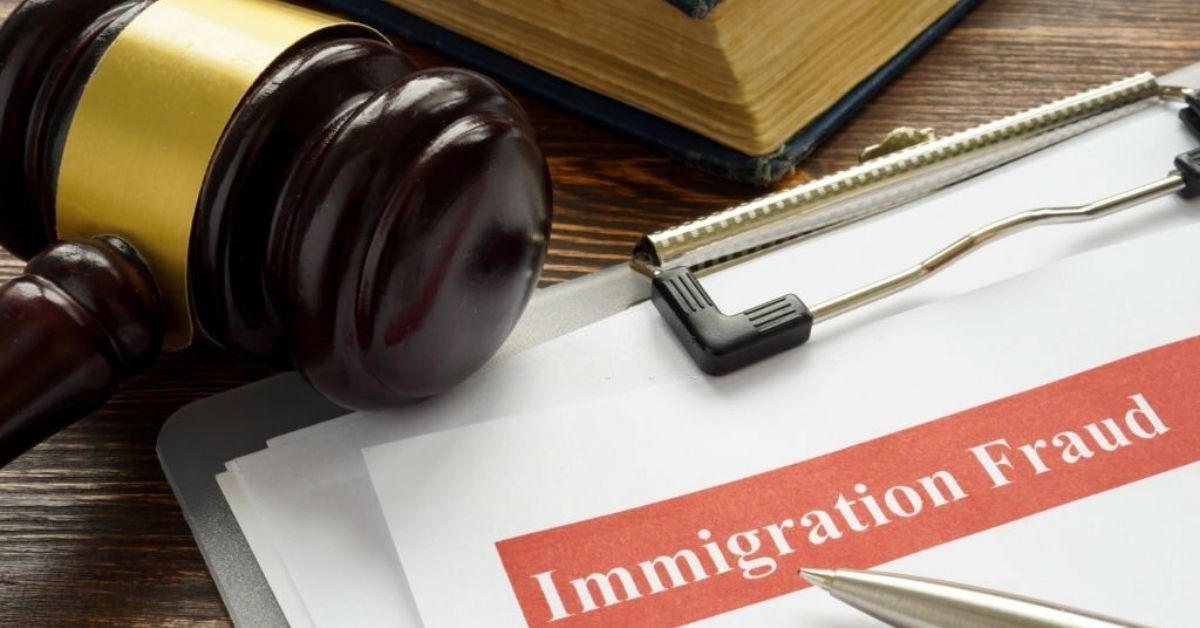Visa Fraud and Scams: How to Protect Yourself
Visa fraud and scams pose a significant threat to individuals seeking immigration, employment, or other opportunities that involve obtaining a visa. These fraudulent activities can range from identity theft to elaborate schemes exploiting the desperation of individuals seeking legal status. Understanding the various types of scams and being aware of warning signs is crucial in safeguarding oneself from falling victim to these deceitful practices.
Definition of Visa Fraud and Scams
Visa fraud encompasses a range of illegal activities designed to deceive immigration authorities, often with the goal of gaining unauthorized access to a country. Scams, on the other hand, involve tricking individuals into providing personal information or money under false pretenses related to visa applications or immigration processes.
Importance of Visa Security
The significance of visa security cannot be overstated. For individuals, it means protecting one’s identity, finances, and personal well-being. For governments, it involves maintaining the integrity of immigration systems and ensuring that only qualified and legitimate individuals enter the country.
Overview of Common Visa Fraud Schemes
Various visa fraud schemes exist, preying on the vulnerability and desperation of individuals seeking visas for better opportunities. These schemes include identity theft, employment scams, and marriage fraud. Understanding the methods employed in these schemes is crucial for individuals to protect themselves effectively.
Types of Visa Fraud and Scams
Identity Theft
Identity theft in the context of visa fraud involves someone assuming the identity of another person to gain access to a visa illegally. This may include the use of forged documents, impersonation during interviews, or other deceptive practices.
Impersonation is a common tactic where fraudsters pretend to be someone else during visa interviews or application processes. They may use stolen identification documents to present themselves as legitimate applicants.
Document forgery is another form of identity theft, wherein individuals create or alter documents to misrepresent their identity or qualifications. This may include falsifying educational certificates, employment records, or financial statements.
Employment Scams
Fraudulent job offers and visa sponsorship scams are prevalent in the realm of employment-related visa fraud. Scammers often target individuals seeking job opportunities in foreign countries.
Fake job offers involve scammers creating fictitious job postings or contacting individuals with enticing job opportunities that don’t actually exist. Victims are then asked to pay upfront fees for processing visas or other related expenses.
Visa sponsorship scams involve fraudsters posing as legitimate employers willing to sponsor visas. Victims are asked to pay substantial fees for visa processing, only to discover later that the promised job and visa sponsorship were fraudulent.
Marriage Fraud
Marriage fraud is a deceptive practice where individuals enter into sham marriages solely for the purpose of obtaining a visa. In some cases, individuals may engage in fake marriages with citizens of a country to gain legal status.
Sham marriages involve a couple pretending to be in a genuine marital relationship while having no intention of establishing a real family. This is done to exploit immigration laws that allow spouses of citizens to obtain visas.
Green card lotteries are another form of marriage fraud where scammers promise individuals a chance to win a visa through a lottery system, often requiring payment for participation. In reality, there is no such lottery, and victims lose money without any chance of obtaining a visa.
Signs of Visa Fraud
Unusual Requests for Personal Information
One of the warning signs of visa fraud is the solicitation of unusual or unnecessary personal information. Legitimate immigration processes typically do not require highly sensitive information such as bank account details or passwords.
Pressure Tactics and Urgency
Scammers often use pressure tactics, creating a sense of urgency to push victims into making quick decisions without proper consideration. Urgent requests for payment or immediate action should raise suspicions.
Too-Good-to-Be-True Offers
If an offer seems too good to be true, it probably is. Individuals should be skeptical of promises that seem overly generous or easy, especially if they involve quick visa approvals or guaranteed success.
Unrealistic Promises
Fraudulent entities may make unrealistic promises, such as guaranteeing visa approvals or offering shortcuts in the immigration process. Individuals should be cautious if an offer deviates significantly from standard immigration procedures.
Real-Life Examples
Case Studies of Visa Fraud Incidents
Numerous real-life examples illustrate the diverse and sophisticated nature of visa fraud. In one case, a group of individuals created a fake company, posted enticing job offers online, and charged applicants substantial fees for visa processing. The company turned out to be nonexistent, and victims lost significant amounts of money.
In another instance, a marriage fraud scheme involved orchestrating fake weddings between citizens and non-citizens. The couples never lived together, and the marriages were solely for the purpose of obtaining visas. Immigration authorities uncovered the scheme, leading to legal consequences for the fraudsters involved.
Impact on Victims
The impact of visa fraud on victims extends beyond financial losses. Victims may face legal consequences, deportation, and damaged reputations. The emotional toll of realizing one has fallen victim to deception can be severe, affecting mental and psychological well-being.
Legal Consequences for Perpetrators
Governments worldwide take visa fraud seriously, and perpetrators can face severe legal consequences. Penalties may include fines, imprisonment, deportation, and bans on future entry. Authorities actively investigate and prosecute individuals involved in visa fraud to deter others from engaging in similar activities.
How to Protect Yourself
Verify Legitimate Sources
To protect oneself from visa fraud, it’s crucial to verify the legitimacy of sources. Official government websites and recognized immigration agencies are reliable sources for information and application processes. Individuals should cross-reference information and be wary of unsolicited communications.
Be Skeptical of Unsolicited Offers
Unsolicited offers, whether via email, phone, or social media, should be treated with skepticism. Legitimate immigration processes rarely involve unsolicited communication, especially those pressuring individuals to act urgently or pay fees upfront.
Know Your Rights and Responsibilities
Understanding one’s rights and responsibilities in the immigration process is essential. This includes being aware of the typical procedures, required documents, and legitimate fees. Knowledgeable individuals are less likely to fall victim to scams.
Consult with Legal Professionals
When in doubt, individuals should seek advice from legal professionals specializing in immigration. Consulting with an immigration lawyer can provide clarity on the legitimacy of offers and help individuals navigate the complex immigration landscape.
Report Suspicious Activities
Reporting suspicious activities to relevant authorities is a civic responsibility. Individuals who encounter potential visa fraud or scams should report their experiences to immigration agencies, law enforcement, or other appropriate organizations.
Legal and Regulatory Measures
International Cooperation
Given the global nature of visa fraud, international cooperation is crucial. Countries collaborate to share information, intelligence, and best practices to combat cross-border visa fraud effectively.
Government Initiatives
Governments implement initiatives to enhance visa security and prevent fraud. This may include the use of advanced biometric technologies, stricter vetting processes, and public awareness campaigns to educate individuals about potential scams.
Penalties for Visa Fraud
Stringent penalties deter individuals from engaging in visa fraud. Penalties may include substantial fines, imprisonment, and deportation. Additionally, governments may seize assets obtained through fraudulent means.

Resources for Victims
Victim Support Organizations
Various organizations provide support and assistance to victims of visa fraud. These organizations offer counseling, legal guidance, and resources to help victims navigate the aftermath of fraud.
Reporting Agencies
Reporting agencies play a crucial role in combating visa fraud. Individuals can report suspicious activities to relevant government agencies responsible for immigration and law enforcement.
Counseling Services
Victims of visa fraud may experience emotional distress and trauma. Counseling services specializing in assisting victims of fraud can provide the necessary support to help individuals cope with the psychological impact.
For more information on secure travel and visa services, visit our website to find the best solution.
Further Reading: Visa Processing Times: What to Expect and How to Plan Your Trip
Conclusion
In conclusion, protecting oneself from visa fraud and scams requires awareness, vigilance, and informed decision-making. Understanding the various types of fraud, recognizing warning signs, and taking proactive steps to verify information are essential in safeguarding against deceitful practices. Governments, legal professionals, and support organizations also play critical roles in creating a robust framework to combat visa fraud and protect the integrity of immigration systems worldwide.
By staying informed and being cautious, individuals can empower themselves to navigate the complex landscape of visa applications with confidence and security. Contact us if you have any queris about visa proccesing.

